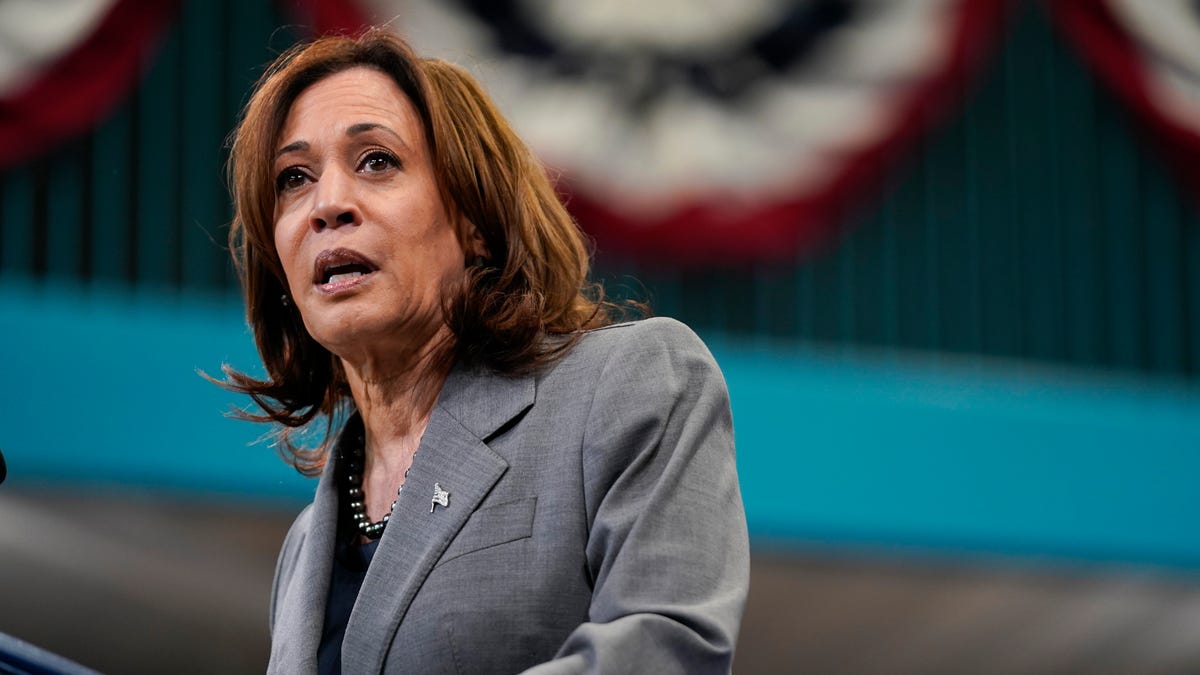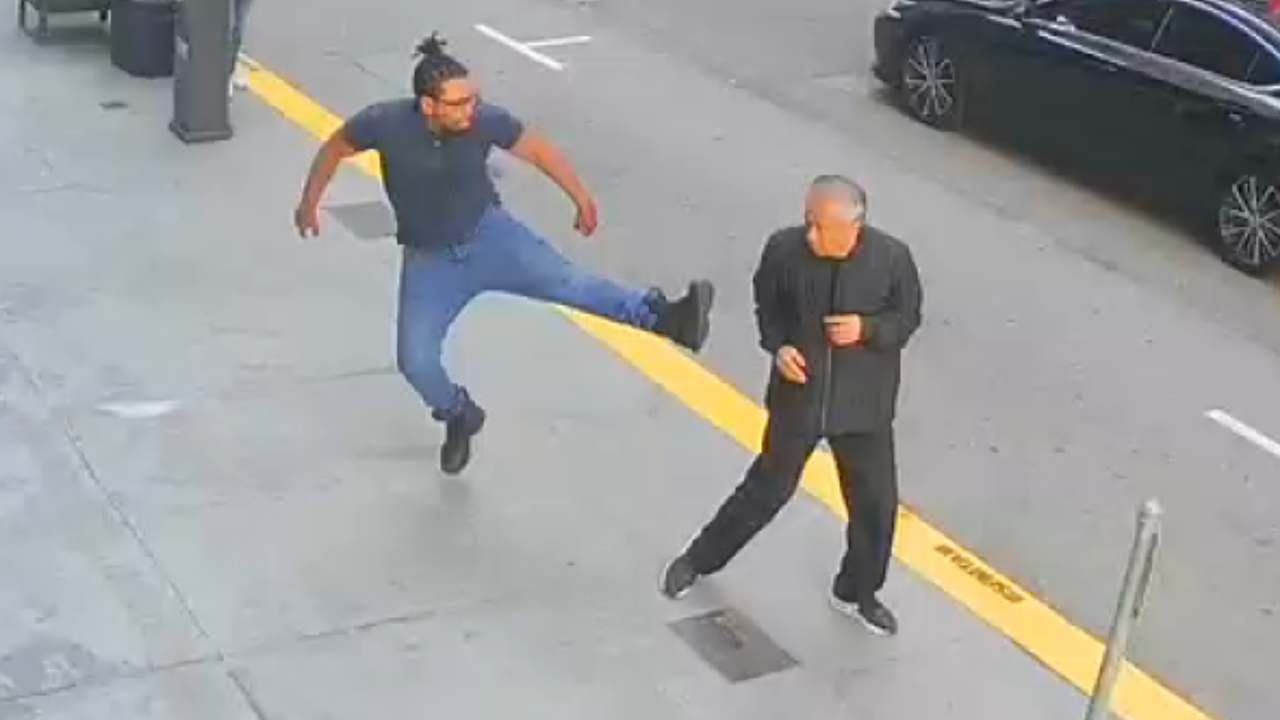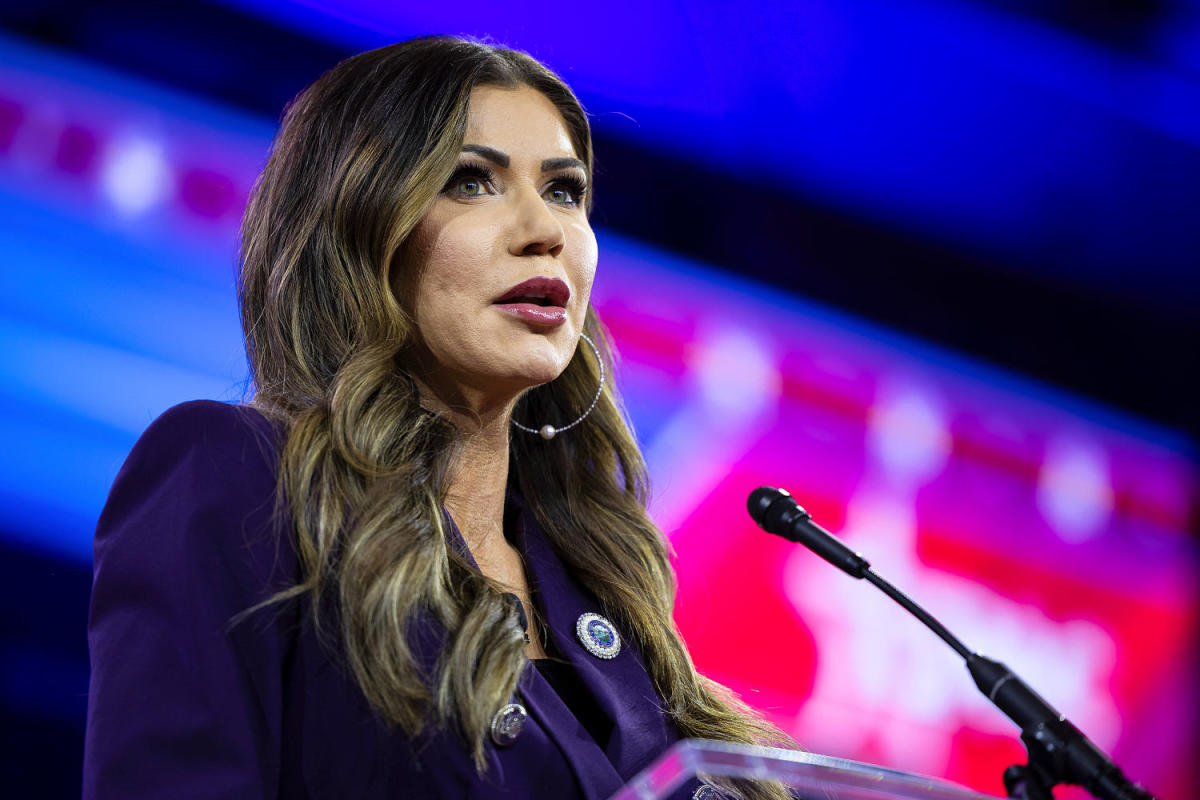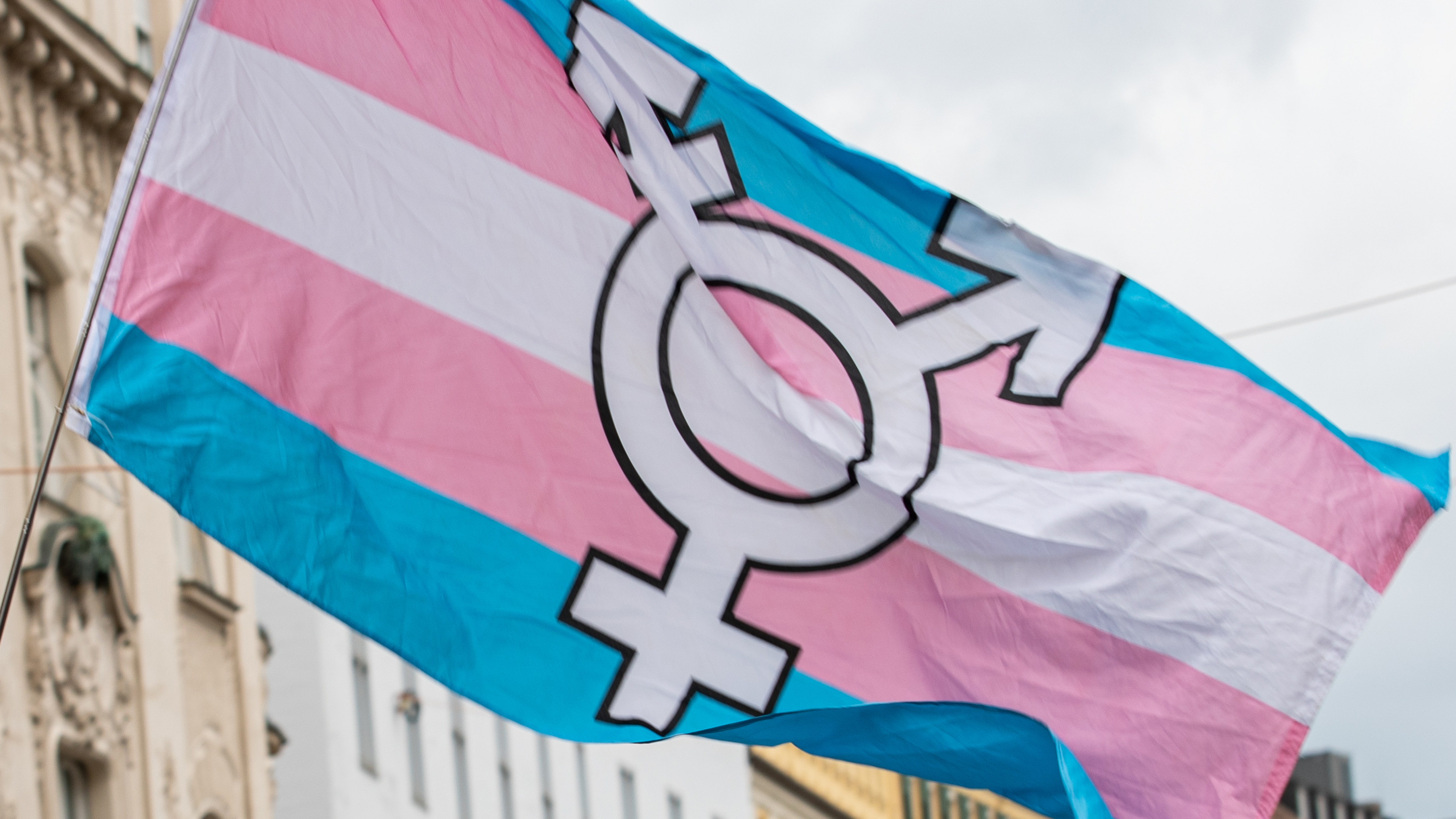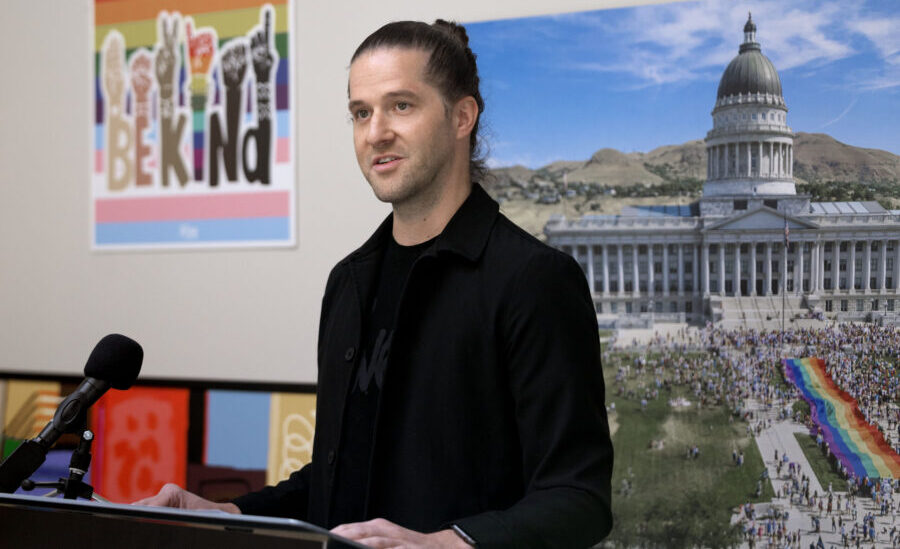World
Biden ‘playing with fire’ by redesignating Yemen’s Houthis as ‘terrorists’
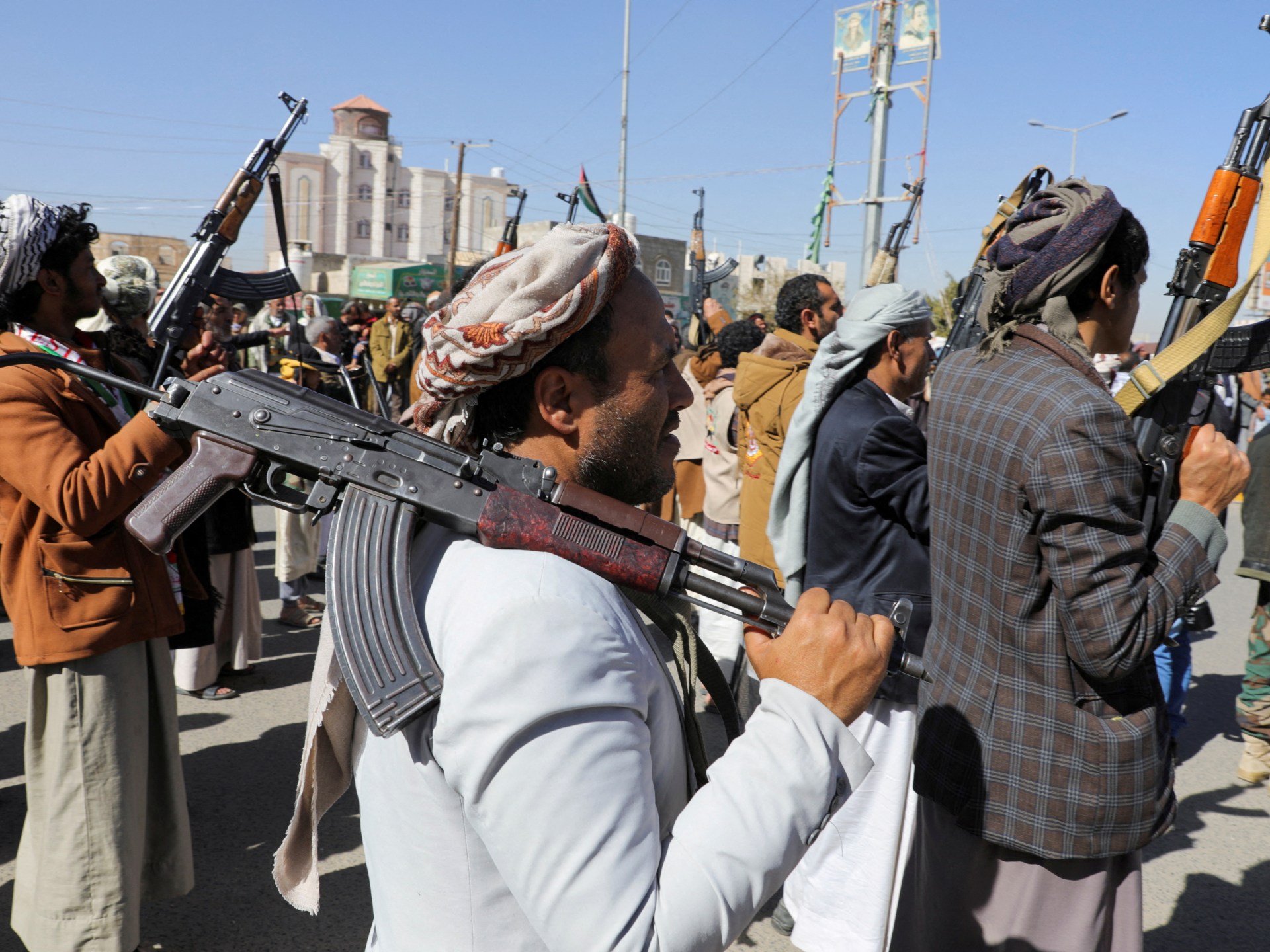
It was one of Joe Biden’s first major foreign policy decisions.
Less than a month after taking office in January 2021, the United States president lifted two “terrorist” designations imposed by his predecessor, Donald Trump, against Yemen’s Houthi rebels.
At the time, Secretary of State Antony Blinken said the move came in “recognition of the dire humanitarian situation in Yemen”. The United Nations, as well as humanitarian groups and US lawmakers, had warned the “terrorist” designations could interrupt the flow of aid to the country.
Now, almost exactly three years later, the Biden administration is reimposing one of the designations against the Houthis, declaring them to be a “Specially Designated Global Terrorist group” amid a series of attacks in the Red Sea.
And once again, rights advocates and political analysts are sounding the alarm over the negative effects the decision may have on Yemeni civilians. Many also question whether Wednesday’s designation will succeed in pushing the Houthis to end their attacks.
“I’m very concerned about the devastating consequences for ordinary people in Yemen,” said Afrah Nasser, a non-resident fellow at the Arab Center Washington DC who previously worked as a Yemen researcher at Human Rights Watch.
Nasser told Al Jazeera that the designation risks deepening the humanitarian crisis in Yemen, which has experienced a years-long war between the Houthis and a coalition led by Saudi Arabia and the United Arab Emirates.
More than half of the Yemeni population — 18.2 million people — is in need of assistance, according to the UN, as the country reels from an economic crisis, rising costs, mass displacement and hunger.
“The ordinary Yemeni family today is suffering because of both the Houthi domestic policies and also the international community policies in Yemen, such as this [US] designation that we heard today,” Nasser said. “Yemenis are caught between two fires.”
Red Sea attacks
In a statement on Wednesday morning, Blinken said the “Specially Designated Global Terrorist group” designation (SDGT) came in response to Houthi attacks on commercial vessels in the Red Sea.
“This designation seeks to promote accountability for the group’s terrorist activities. If the Houthis cease their attacks in the Red Sea and Gulf of Aden, the United States will reevaluate this designation,” the top US diplomat said.
The Iran-aligned Houthis, who control large swaths of Yemen, began firing missiles at Israel and attacking commercial ships in the Red Sea shortly after the war in Gaza began in October.
The group pledged to target Israel-linked vessels as part of an effort to pressure the country’s government to end its Gaza bombardment and allow more humanitarian aid deliveries into the coastal Palestinian enclave. It later expanded the threat to any commercial vessels travelling to and from Israel along the arterial trade route off Yemen’s coast.
The attacks led shipping companies to suspend operations in the Red Sea and drew condemnation from the US and its allies.
Washington launched a naval coalition to protect commercial vessels in December, and it also carried out several strikes against Houthi targets in Yemen this month in what observers called a “dangerous” escalation.
On Wednesday, the Biden administration defended its decision to reimpose the SDGT designation on the Houthis, saying there would be “carve-outs” to protect aid to Yemen.
“Today’s designation targets the Houthis, not the Yemeni people,” National Security Council spokesperson John Kirby said in a press conference.
When asked about how any related sanctions would impact negotiations with the Houthis, Kirby responded firmly: “There’s no negotiations. There’s not a bargaining chip. It’s a way of holding the Houthis accountable.”
But experts cast doubt on whether the SDGT designation would lead the Houthis to stop their attacks in the Red Sea, as the administration suggested.
“It seems highly unlikely to have any positive effect on the behaviour of the Houthis,” said Brian Finucane, a senior US programme adviser at the International Crisis Group think tank.
“I think it’s a form of do-something-ism,” he told Al Jazeera. The reimposition of the SDGT designation, he added, is a reflection of Washington’s refusal to recognise that recent Houthi attacks are linked to the war in Gaza.
“The Biden administration has put itself in a box … where it doesn’t have good policy options.”
The designation
An SDGT designation focuses primarily on the finances of an individual or a group. In this case, it will freeze the Houthis’ assets in the US and prohibit American citizens from having any financial dealings with the organisation.
And while “civil and criminal penalties may be assessed for violations”, the designation is more narrow in scope than the second label that the Trump administration had imposed on the Houthis: that of “Foreign Terrorist Organization” or FTO.
That label makes it a serious crime to provide support to a blacklisted group.
“This [SDGT designation] is sort of a minimal: restricting access to funds from abroad, access to international markets. These are things that Houthis don’t have and never had. They don’t own stock on the New York Stock Exchange,” said Nabeel Khoury, a former deputy chief of mission at the US embassy in Yemen.
Nevertheless, Khoury told Al Jazeera that the Houthis are unlikely to make a distinction between an SDGT or FTO designation and will see Wednesday’s decision as an affront that could lead to further escalation.
Hours after the designation was announced, the Houthis said they fired “naval missiles” at an American ship in the Gulf of Aden. US Central Command later confirmed the US-owned and operated Genco Picardy was struck, causing some damage but no injuries.
“It’s really baffling what this administration is engaged in. I don’t think there’s much thought that went into this,” Khoury said. “This designation is more like an insult. It’s the old glove in the face, slap someone with your glove. You’re sort of challenging, but not really hurting them.”
Nasser also warned that the designation could further embolden the Houthis and “contribute in radicalising some parts of the population and strengthen the Houthi recruitment system”.
‘Level of uncertainty for Yemenis’
Yet, while the SDGT designation is “narrower” than an FTO, the Biden administration is aware “that these sanctions could make things worse for the people of Yemen”, said Finucane.
That’s because financial institutions and humanitarian organisations “are likely to be very cautious about engaging with the Houthis in Yemen”, particularly until clear rules around the redesignation are laid out, Finucane explained.
On Wednesday, the Biden administration said it is “taking significant steps to mitigate any adverse impacts this designation may have on the people of Yemen”. The decision will come into effect in 30 days, Blinken’s statement said, during which time the administration will consult with aid organisations and other stakeholders.
The US Department of Treasury also is expected to publish licenses “authorizing certain transactions related to the provision of food, medicine, and fuel, as well as personal remittances, telecommunications and mail, and port and airport operations on which the Yemeni people rely”.
An SDGT designation is doing something to do something. Like an FTO designation, it’s toothless and won’t have any desired effect. Where the FTO would have ushered in a certain catastrophe, an SDGT carries only a severe risk of catastrophe.
— Scott Paul (@ScottTPaul) January 16, 2024
But that hasn’t dampened fears the designation will affect Yemenis negatively.
“This designation would add another level of uncertainty and threat for Yemenis still caught in one of the world’s largest humanitarian crises,” Scott Paul, associate director of peace and security at Oxfam America, told Al Jazeera in a written statement.
“The Biden administration is playing with fire, and we call on them to avoid this designation immediately and prioritise the lives of Yemenis now.”
With files from Al Jazeera’s Ali Harb in Washington, DC.

World
Blinken says US cannot support Rafah assault without humanitarian plan

World
The unexpected announcement of a prime minister divides Haiti's newly created transitional council
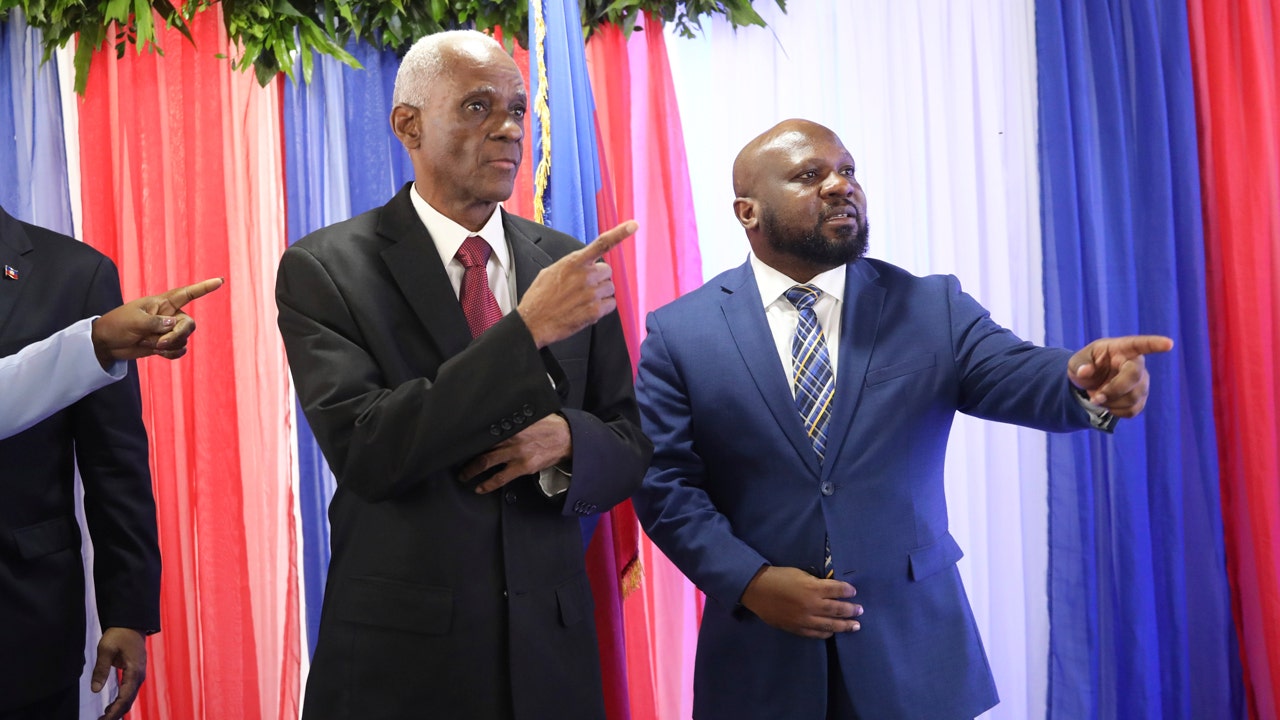
A surprise announcement that revealed Haiti’s new prime minister is threatening to fracture a recently installed transitional council tasked with choosing new leaders for the gang-riddled Caribbean country.
Four of seven council members with voting powers said Tuesday that they had chosen Fritz Bélizaire as prime minister, taking many Haitians aback with their declaration and unexpected political alliance.
HAITI COUNCIL APPOINTS NEW PRIME MINISTER AS COUNTRY CONTINUES TO FACE DEADLY GANG VIOLENCE
The council members who oppose Bélizaire, who served as Haiti’s sports minister during the second presidency of René Préval from 2006 to 2011, are now weighing options including fighting the decision or resigning from the council.
A person with direct knowledge of the situation who did not want to be identified because negotiations are ongoing said the council’s political accord had been violated by the unexpected move and that some council members are considering other choices as potential prime minister.
Edgard Leblanc Fils, left, and Smith Augustin prepare to pose for a group photo with the transitional council after it named Fils as its president in Port-au-Prince, Haiti, Tuesday, April 30, 2024. The transitional council will act as the country’s presidency until it can arrange presidential elections sometime before it disbands, which must be by February 2026. (AP Photo/Odelyn Joseph)
The council on Tuesday was scheduled to hold an election and choose its president. But two hours and a profuse apology later, one council member said that not only a council president had been chosen, but a prime minister as well. Murmurs rippled through the room.
The Montana Accord, a civil society group represented by a council member with voting powers, denounced in a statement late Tuesday what it called a “complot” hatched by four council members against the Haitian people “in the middle of the night.”
“The political and economic mafia forces have decided to take control of the presidential council and the government so that they can continue to control the state,” the Montana Accord said.
Haitian politics have long been characterized by secretive dealings, but many worry the country cannot afford further political instability as gangs lay siege to the capital of Port-au-Prince and beyond.
“People change parties (like) they’re changing their shirts,” said François Pierre-Louis, a professor of political science at Queens College in New York and former Haitian politician.
He spoke during an online webinar on Tuesday evening.
Like others, he said he believed that Jean-Charles Moïse, a powerful politician who was a former senator and presidential candidate, was behind Bélizaire’s nomination.
“Interestingly, Moïse, of all the politicians there, is the one calling the shots,” Pierre-Louis said.
Moïse, however, does not sit on the council. His party, Pitit Desalin, is represented by Emmanuel Vertilaire, who is among the four council members who support Bélizaire.
The others are Louis Gérald Gilles, Smith Augustin and Edgard Leblanc Fils, the council’s new president.
They could not be immediately reached for comment.
A document shared with The Associated Press and signed by the four council members who chose the new prime minister state they have agreed to make decisions by consensus. The document is titled, “Constitution of an Indissoluble Majority Bloc within the Presidential Council.”
The move prompted the Fanmi Lavalas party to issue a statement Wednesday calling it a “masquerade” and “conspiracy” to guarantee that PHTK “thugs and their allies retain power…and continue the tradition of corruption.”
“The Lavalas Family strongly rejects the betrayal scandal that occurred on April 30,” the party said.
Fils represents the January 30 political group, which is made up of parties including PHTK, whose members include former President Michel Martelly and slain President Jovenel Moïse. Meanwhile, Augustin represents the EDE/RED political party, founded by former Prime Minister Claude Joseph, and Gilles represents the Dec. 21 agreement, which is associated with former Prime Minister Ariel Henry, who recently resigned.
Henry was on an official visit to Kenya to push for the U.N.-backed deployment of a police force from the East African country when gangs in Haiti launched coordinated attacks starting Feb. 29.
They have burned police stations, opened fire on the main international airport that remains closed since early March and stormed Haiti’s two biggest prisons, releasing more than 4,000 inmates. The violence continues unabated in certain part of Port-au-Prince, including the area around the National Palace.
Haitians are demanding that security be a top priority for the council, which is tasked with selecting a new prime minister and Cabinet, as well as prepare for eventual general elections.
But some Haitians are wary of the council and the decisions it’s taking.
Jean Selcé, a 57-year-old electrician, noted that most of the council members are longtime politicians: “Their past is not really positive.”
“I hope their mentality can change, but I don’t believe it will,” he said. “They don’t really love the country. Who’s dying right now? It’s Haitians like me.”
Robert Fatton, a Haitian politics expert at the University of Virginia, noted that some of the parties represented on the council are responsible for the current chaos in Haiti.
“It’s a contradiction,” he said. “Every time we seem to be in a crisis, we reappoint the same people and hope that they change their ways, but they do not.”
Raising the same criticism is Michael Deibert, author of “Notes From the Last Testament: The Struggle for Haiti,” and “Haiti Will Not Perish: A Recent History.”
He noted in a recent essay that the council is “dominated by the same political currents who have spent the last 25 years driving Haiti over a cliff, taking advantage of impoverished young men in the slums to be used as political bludgeons before – bloated on the proceeds from kidnapping, extortion, drug trafficking and other criminal enterprises – these groups outgrew the necessity of their patrons.”
More than 2,500 people have been killed or injured across Haiti from January to March, according to the U.N.
In addition, more than 90,000 people have fled Port-au-Prince in just one month given the relentless gang violence.
World
Arizona Senate repeals near-total 1864 abortion ban in divisive vote

The repeal of abortion ban was passed 16 to 14 and is expected to be signed into law by Governor Katie Hobbs.
The Arizona Senate has voted to repeal the state’s 1864 ban on abortion, which would otherwise have taken effect within weeks.
The repeal was passed by the Senate in a 16-14 vote on Wednesday and is expected to be signed swiftly by Governor Katie Hobbs, a Democrat. Two Republican senators crossed party lines to vote in favour of repealing the ban.
The Arizona House last week passed the measure after a handful of Republicans broke party ranks and voted with Democrats to send it to the Senate.
“We’re here to repeal a bad law,” Senator Eva Burch, a Democrat, said from the floor. “I don’t want us honouring laws about women, written during a time when women were forbidden from voting.”
Republican Senator Wendy Rogers said in casting her vote to maintain the 1864 ban that repealing the law went against the conservative values of Arizona.
“Life starts at conception. They got it right in 1864. We need to continue to get it right in 2024,” Rogers said.
The fight over the Civil War-era abortion ban in Arizona, a state sharply split between Democrats and Republicans, is the latest flashpoint on women’s reproductive rights in the United States. In 2022, the country’s Supreme Court ended the constitutional right to abortion, leaving it up to states to decide the issue. Conservative-led states quickly invoked strict bans on the procedure within their borders.
Democrats across the US, confident that public opinion is on their side in supporting abortion rights, have sought to elevate the issue ahead of November’s presidential election. Arizona is a key battleground state.
Heather Williams, president of the Democratic Legislative Campaign Committee that works to elect Democrats to state legislatures, said her party would capitalise on the “extreme nature of MAGA Arizona Republicans” who voted to maintain the 1864 law as Democrats try to flip the state’s House and Senate in November’s elections.
Rogers, the Republican state senator, acknowledged the political risks.
“Some colleagues would say it’s politically pragmatic for us to find middle ground,” she said. “We might lose the legislature, we might lose the presidential election. But it’s more important to do what’s right.”
Near-total ban on abortions
The 1864 law was revived by a state Supreme Court ruling on April 9, and unless the legislature intervened, it would have taken effect within 60 days of that ruling, according to state Attorney General Kris Mayes, a Democrat.
If the repeal bill is signed, a 2022 statute banning the procedure after 15 weeks of pregnancy would become Arizona’s prevailing abortion law. Still, there would probably be a period when nearly all abortions would be outlawed because the repeal would not take effect until 90 days after the end of the legislative session, which is expected to be in June or July.
Planned Parenthood Arizona, a sexual health organisation in the state, announced it filed a motion on Wednesday afternoon asking the state Supreme Court to prevent a pause in abortion services until the repeal takes effect.
The near-total ban on abortions predates Arizona becoming a state.
Under the 1864 law, “every person” who participates in conducting an abortion can be held criminally liable and face a minimum sentence of two years in prison.
There are no exceptions for cases of rape or incest, although there is an exception when the pregnancy puts a woman’s life at risk.
-

 Education1 week ago
Education1 week agoVideo: Dozens of Yale Students Arrested as Campus Protests Spread
-

 News1 week ago
News1 week agoLarry Webb’s deathbed confession solves 2000 cold case murder of Susan and Natasha Carter, 10, whose remains were found hours after he died
-

 World7 days ago
World7 days agoHaiti Prime Minister Ariel Henry resigns, transitional council takes power
-

 Politics1 week ago
Politics1 week agoFetterman hammers 'a–hole' anti-Israel protesters, slams own party for response to Iranian attack: 'Crazy'
-

 World1 week ago
World1 week agoPeriod poverty still a problem within the EU despite tax breaks
-

 World1 week ago
World1 week agoUS secretly sent long-range ATACMS weapons to Ukraine
-

 News7 days ago
News7 days agoFirst cargo ship passes through new channel since Baltimore bridge collapse
-

 World1 week ago
World1 week agoTurkey’s Erdogan meets Iraq PM for talks on water, security and trade


